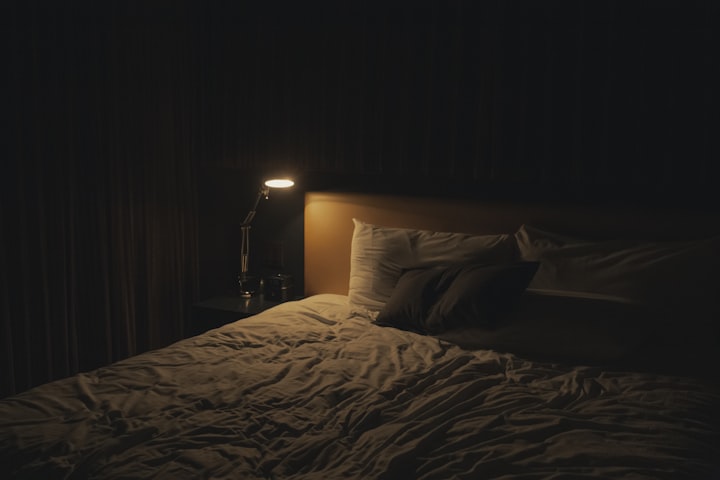How To Relax and Unplug from a Fast-Paced World
Here are 8 tips to relax and disconnect for a better quality of life.

Introduction
In today’s fast-paced world, digital devices and technology make it easy to stay connected all the time - even when you don’t want to be. It can be hard to resist checking apps and digital content designed to keep your eyes glued to the screen. However, it’s important to unplug and take regular breaks from the digital onslaught.
The good news is that you don’t have to become a digital hermit to enjoy a better quality of life through unplugging. Check out these eight tips on how to unplug and disconnect, along with some of the benefits of doing so.
The importance of unplugging and unwinding
For most, unplugging can provide a range of mental and physical health benefits that boost satisfaction and quality of life.
- Mental health - According to research, excessive smartphone usage and social media usage are linked with anxiety, depression, OCD, ADHD, and alcohol use disorder. Unplugging regularly could lower the risk of these conditions. Other benefits of unplugging and resting include stress reduction, higher creativity, improved productivity, and better decision-making.
- Physical health - Unsurprisingly, good physical health and wellness is important for the vast majority of seniors as well as the general population. Minimising stress and taking care of your mental and physical health by unplugging and unwinding can support this even if you’re not near retirement age. In addition, taking time out to unwind without digital devices could boost your immune health, alleviate chronic pain, and even lead to a strong cardiovascular system. In general, periodic unplugging and resting can support better resting and healing of your body.
- Procrastination - The internet and digital devices can be great for staying in touch with loved ones and friends. However, it’s all too easy to waste hours on social media or watching endless videos. Unplugging could free up time for more rewarding activities like chores, hobbies, fitness, and general relaxation.
- Sleep - Screens can impact sleep quality, due to blue light exposure impacting our circadian rhythms and suppressing melatonin. Unplugging regularly, well before bedtime, could give you better quality sleep.
- Offline life - Disconnecting from technology can lead to a more fulfilling offline life. You can be more focused on the real world and enjoy richer relationships with others.
- Reflection and balance - Taking unplugging breaks gives you a chance for engaging in reflection and becoming more balanced. In doing so, you can reflect on your life’s big questions and become more balanced as a person.
8 ways to relax and disconnect
Explore these eight different ways to relax and disconnect for a better quality of life, less anxiety, and reduced stress.
- Set limits - Set times of the day or a fixed number of hours when you have unrestricted access to the internet.
- Use an app - You can use an app or browser extension to limit access to certain websites like streaming sites and social media.
- Unplug by content type - This is a good strategy if you’re overusing certain types of content. You can, for example, limit your social media usage or delete your accounts. Alternatively, you might find reducing how much streaming content you watch to be the better approach for you. Work out what makes you happy and gives you more satisfaction and eliminate or limit the rest.
- Tech-free zones - Create tech-free zones in your home, such as your bedroom, outdoor living spaces, and dining room. You have a better time connecting with family members and be able to achieve a better quality of sleep.
- Relaxation techniques - When you’re plugging, use simple relaxation techniques to help with disconnecting. These can include practising gratitude and taking breaks to engage in deep breathing exercises.
- Healthy habits - Practising healthy habits and practices like mindful relaxation, yoga, meditation, and stretching can also enhance your unwinding sessions. In particular, it can help with reducing stress, boosting mood, and better regulating of hormones and neurotransmitters.
- Sleep hygiene - Good sleep hygiene can support your overall unplugging strategy. Keep to a fixed sleep schedule and have a winding down pre-bedtime routine. Avoid caffeine from the late afternoon. You can practise meditation and eliminate digital devices and electronics an hour before bedtime. Don’t work out late in the evening, and keep your bedroom temperature at a comfortable range that’s not too hot or cold. Avoiding napping during the day can also give you better quality sleep.
- Dolce Far Niente - Learn the art of Dolce Far Niente, which translates from Italian as “pleasant relaxation in carefree idleness.” Take time out when you don’t have to be productive or feel guilty for not working or doing something specific. Set aside time, whether it’s a day in your week or a fixed number of hours every day when you’re engaging in Dolce Far Niente without judging yourself or feeling guilty. By doing so, you’ll avoid burnout and excessive stress.
Conclusion
There’s no doubt technology is pervasive in our modern lives, but that doesn’t mean we can’t take measures to actively manage how much it intrudes upon our lives. Being proactive about it can give you better mental and physical health. It can help with better sleep, lowering procrastination, and enrich your offline life. Ultimately, unplugging helps you take responsibility instead of passively letting digital devices and 24-hour connectedness overwhelm you. The benefits can include better physical and mental health and better quality of life overall.
About the Creator
Jacqui Coombe
Jacqueline Coombe is a freelance writer specialising in business development, marketing and career development content. With 7 years of experience preparing content for a range of industries, she enjoys sharing her expertise with others.






Comments
There are no comments for this story
Be the first to respond and start the conversation.